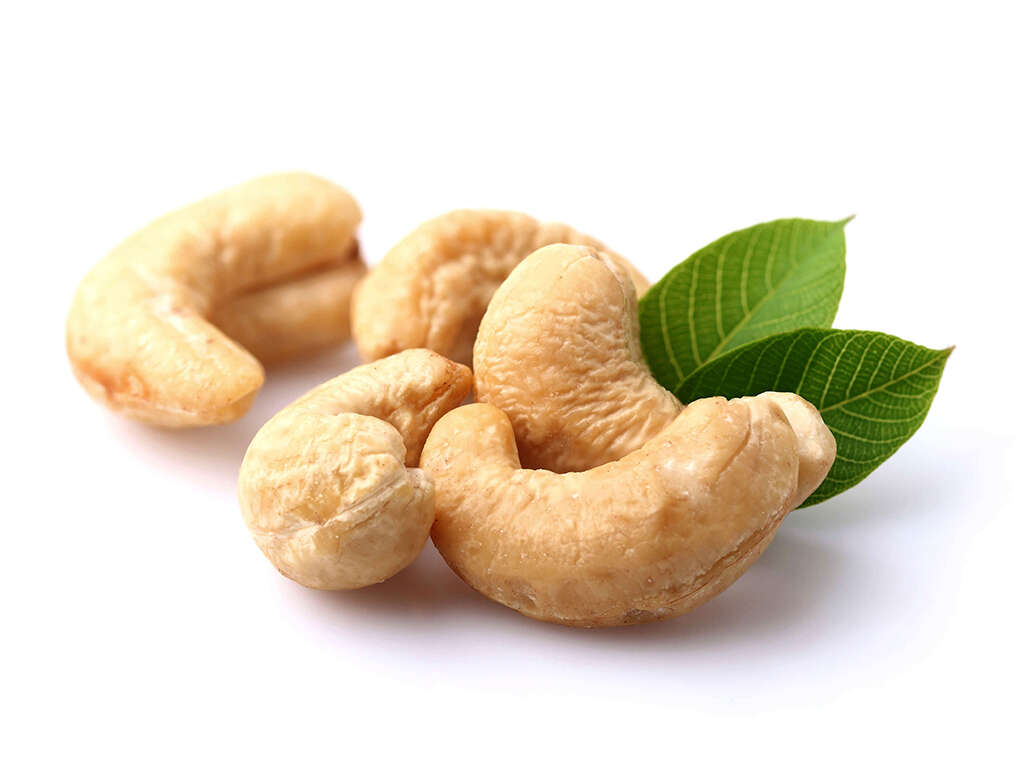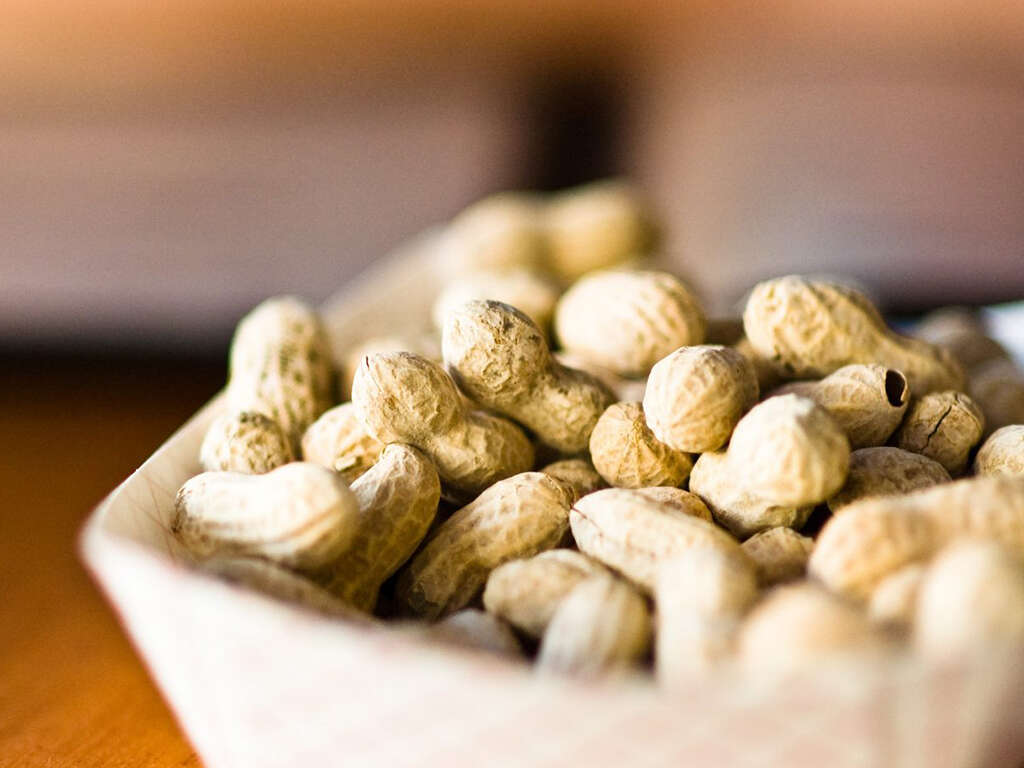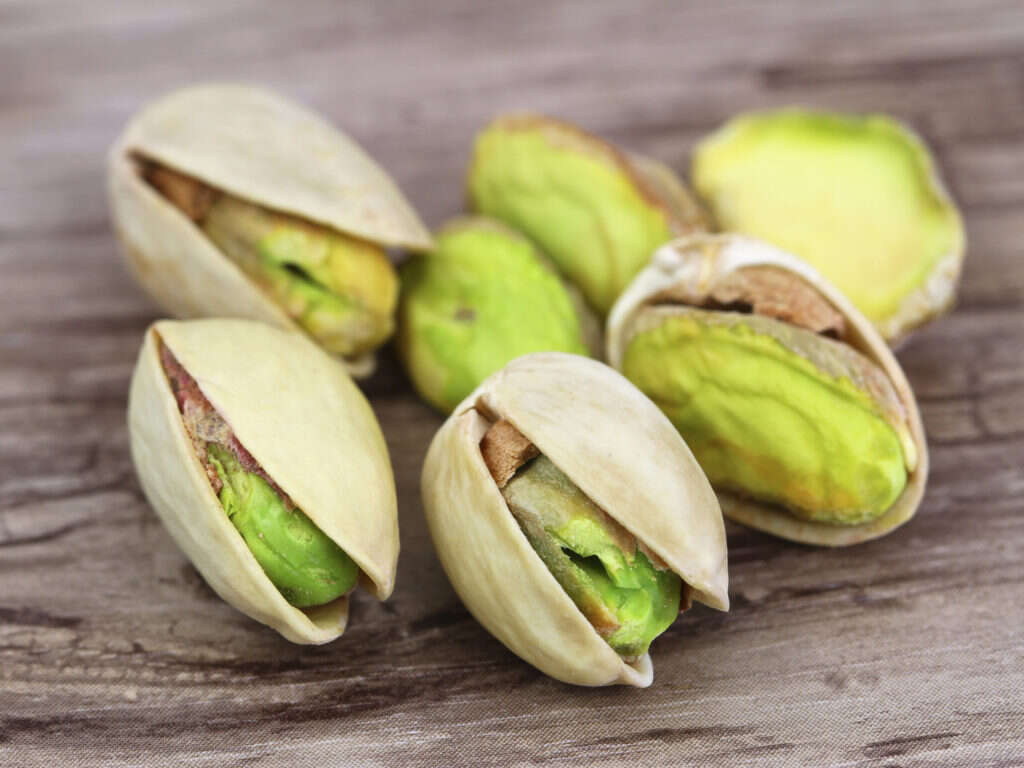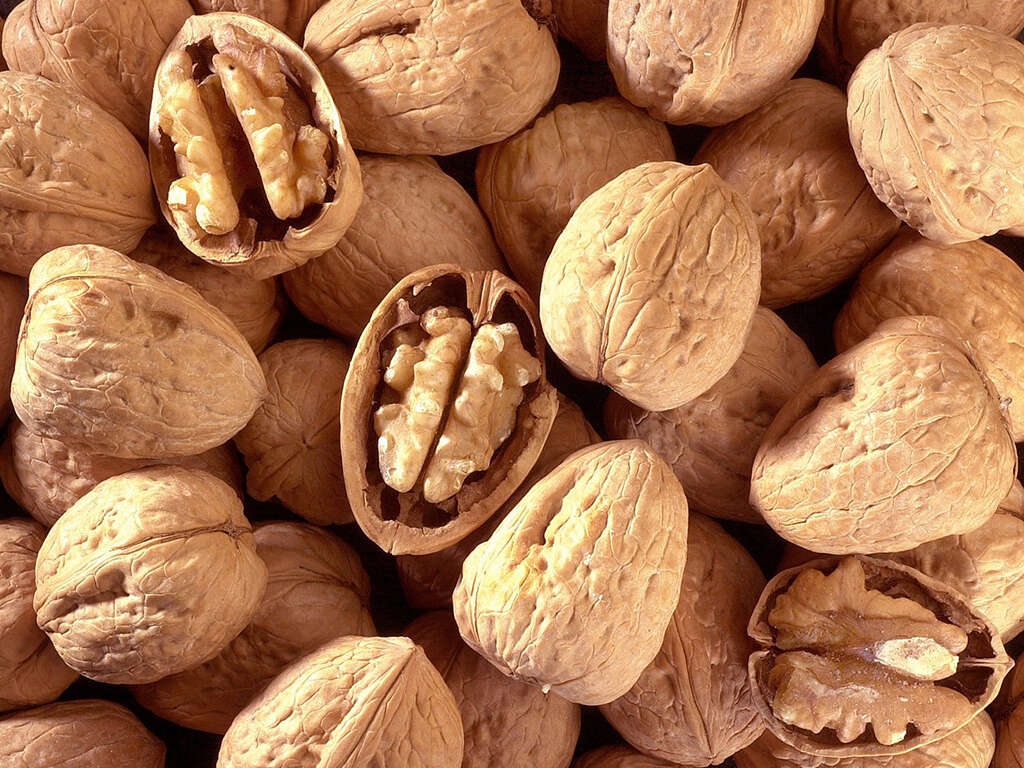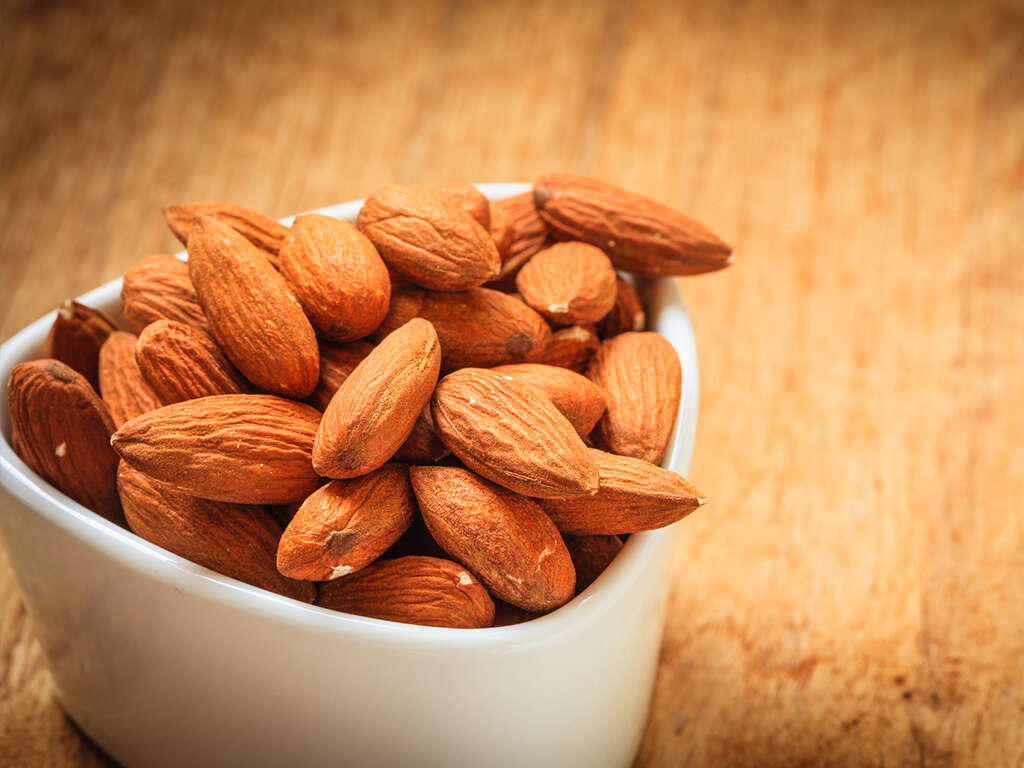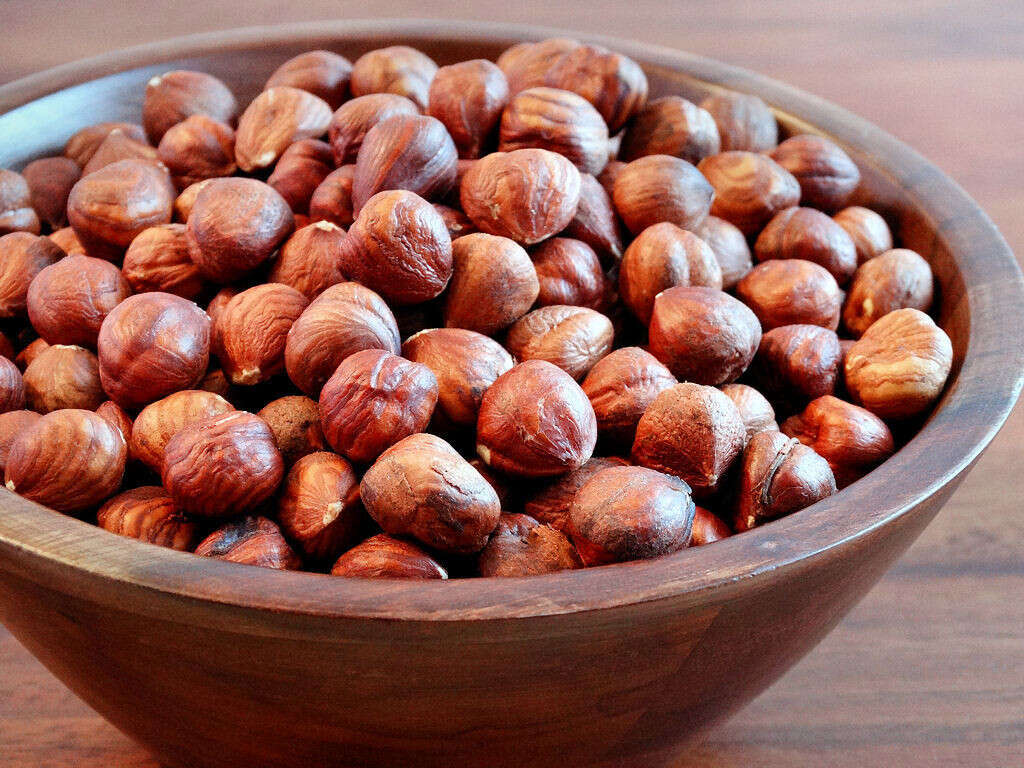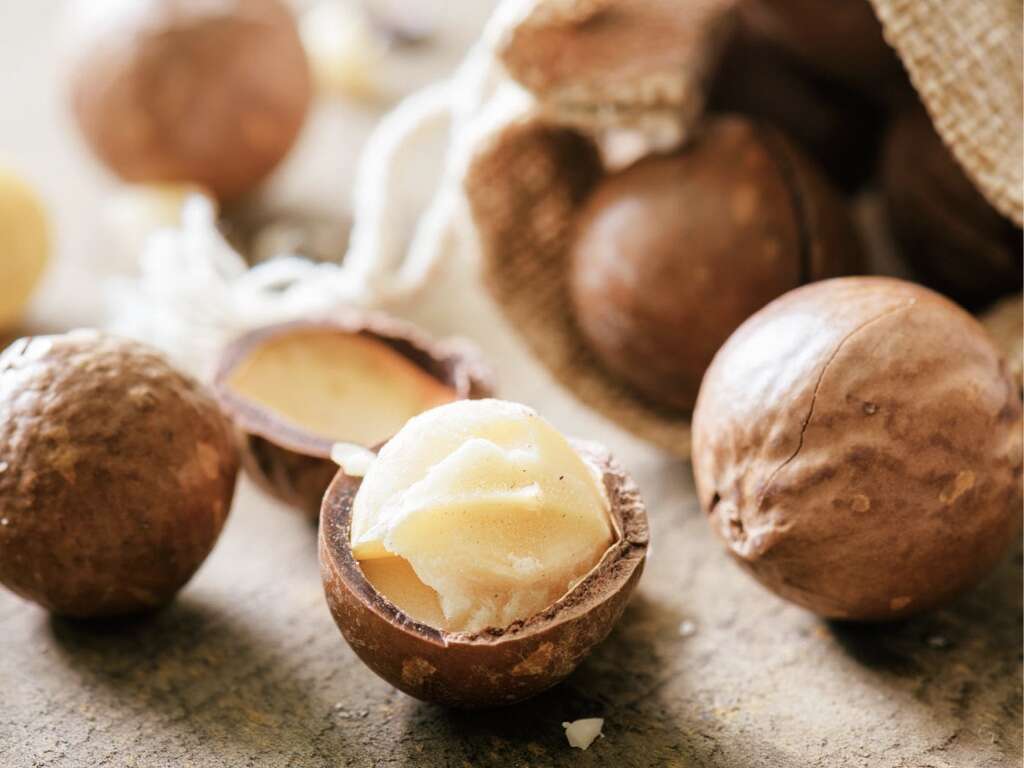10 Healthiest Nuts
Nuts are an important source of nutrients for humans and animals. They can be eaten raw, cooked, roasted or pressed for oils. Most commonly they are easily eaten as a quick and easy snack. There are many varieties, some belonging to the nut family, and some are considered seeds. However, they provide the body both macronutrients and micronutrients essential for health.
Nuts are mostly high in healthy fats and a good source of protein and fiber. There are many studies resulting in health benefits and the consumption of nuts, which include lowering cardiovascular disease risk, a risk of chronic diseases, and certain cancers.
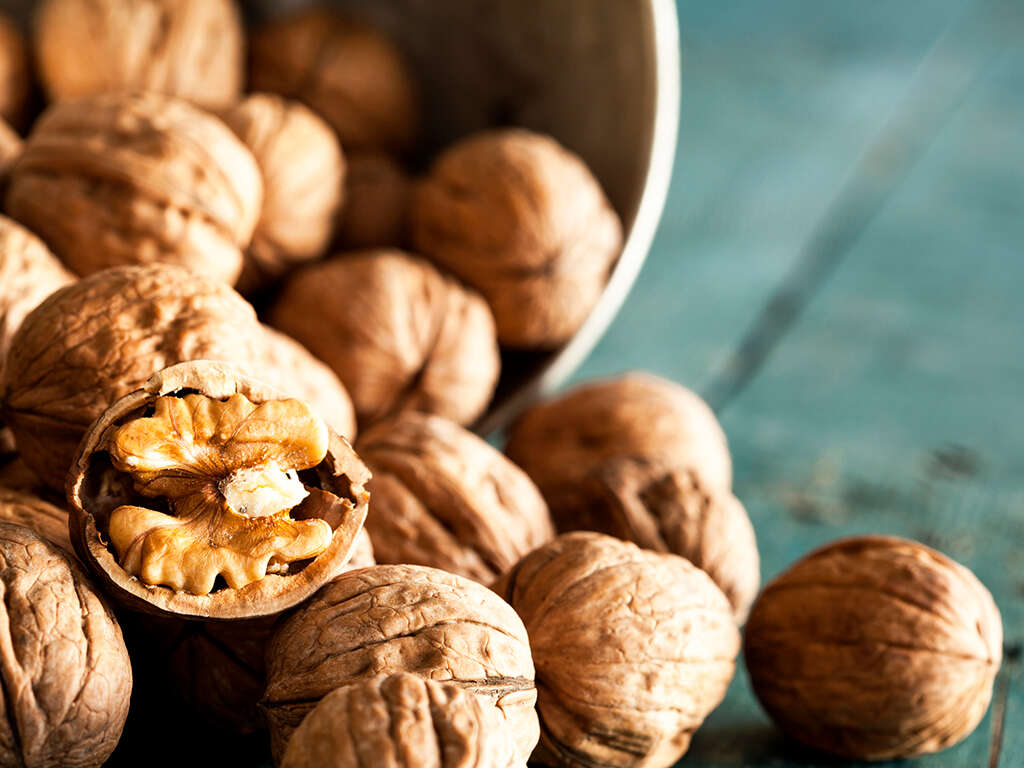
Healthy Nut #1: Almonds
Almonds are the most popular and most consumed tree nuts. As they fall into the seed category, they are easily accessible and quick to eat. The United States is the biggest producer of almonds so they are available everywhere. This snack provides the essential antioxidants and nutrients such as fiber, protein, fat, vitamin E, manganese, and magnesium, to help achieve good health.
There have been many studies about almonds and human health. One clinical trial took 60 adult male smokers and had them consume almonds for about a month. It resulted in a reduction of oxidative stress biomarkers by at least about 23%.
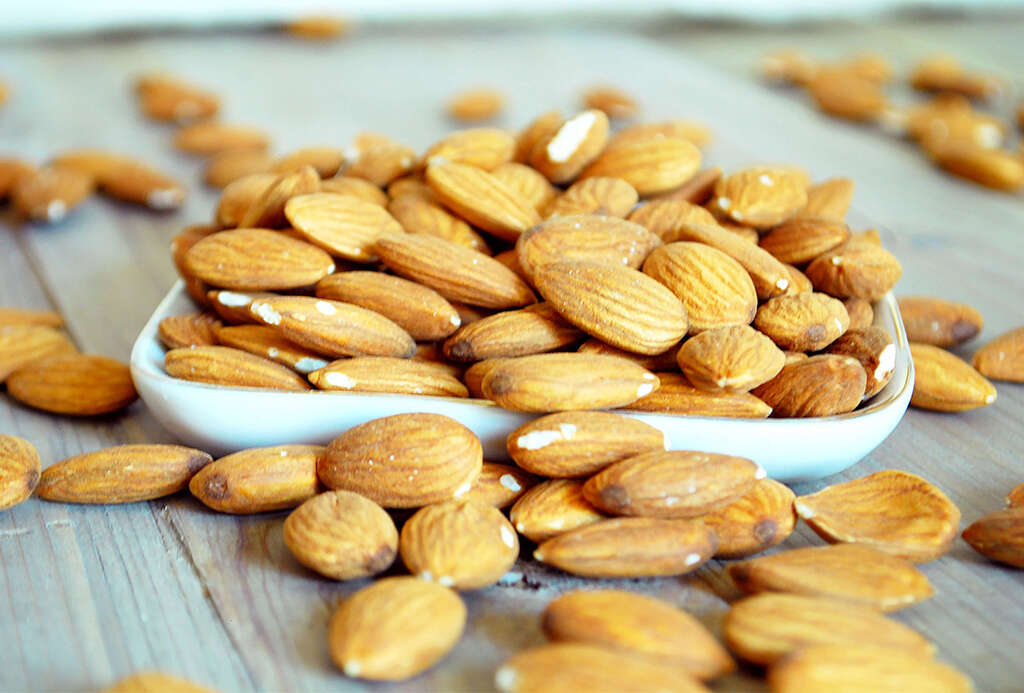
Healthy Nut #2: Walnuts
Walnuts come in an irregularly shaped shell and are a great snack. Walnuts are rich in zinc, calcium, potassium, vitamin E, and magnesium. It also provides healthy fats and fiber which help support good health. They have the most antioxidants than any other nut.
Walnuts provide many health benefits including lowering cholesterol, reducing inflammation, supporting weight loss, and lowering the risk for type 2 diabetes. Studies have also shown that walnuts protect the body from obtaining certain cancers such as breast and colon cancers. Consuming a handful of walnuts can help prevent inflammatory diseases and cancers, which give additional reasons to consume these delicious nuts.

Healthy Nut #3: Cashews
Cashews are the delicious moon shaped seed that is also high in antioxidants. Just like other nuts, they are high in fat, vitamin E, zinc, phosphorus, selenium, and magnesium. Since they are high in magnesium, cashews are a great source of magnesium, which helps alleviate headaches.
Since cashews are high in antioxidants, they help protect cell membranes from oxidative stress. This helps prevent inflammation and diseases. Since cashews contain zeaxanthin and lutein, these antioxidants help protect the eyes against cataracts. As cashews are low in calories, this makes a handful of nuts a great and healthy treat.
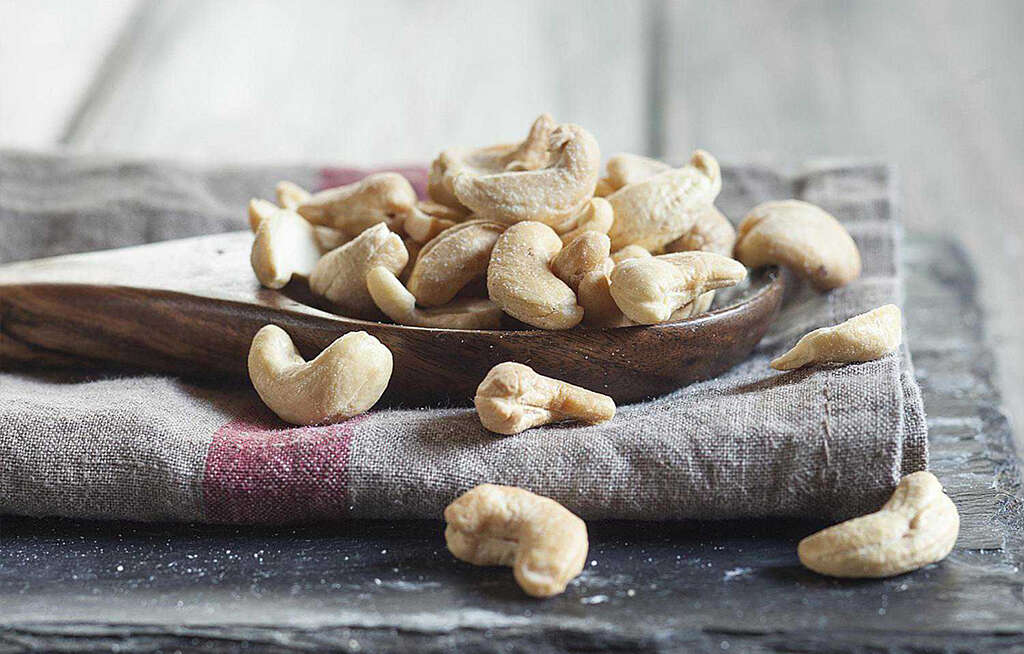
Healthy Nut #4: Macadamia Nuts
Macadamia nuts are mostly found in tropical and subtropical regions like the Hawaiian Islands. They are sometimes roasted and salted for added flavor. They are most popularly known to be covered in chocolate which makes this a pleasant yet nutritious treat. These nuts are an excellent source of minerals and are also rich in antioxidants, fiber, vitamin A, iron, protein, thiamine, riboflavin, and niacin. Macadamia contains monounsaturated fats that help lower cholesterol and decrease the risk of heart disease. However, macadamia nuts also have saturated fats so consumption should be minimized.
Macadamia nuts contain flavonoids that are essential to help lower blood pressure and protect the body from certain cancers. As these types of antioxidants help destroy free radicals, they protect the body from cell damage that causes disease.

Healthy Nut #5: Pecans
Pecans are known to be sweetened with sugar and best known as the staple ingredient in pecan pie during the holiday season. They are delicious in recipes and their crunchy texture along with buttery flavor makes them a great treat. Most importantly, they rank high on the nuts list containing an essential amount of antioxidants and minerals such as potassium, calcium, iron, magnesium, zinc, and selenium. These essential nutrients provide benefits for good health. They also contain saturated fats so consumption of these nuts must be minimal.
Pecans help reduce the risk of heart disease as they contain monounsaturated fats. As they help to lower cholesterol, they also reduce the risk of stroke and coronary artery disease. Since pecans are filled with fiber, they also contribute to improving digestion and help with weight loss.

Healthy Nut #6: Pistachios
Pistachios are part of the cashew family and are considered a seed. As they are usually available still intact with the shell, these creamy nuts are delicious and fun to eat. Pistachios are high in protein, fiber, monounsaturated fat, thiamin, vitamin B6, magnesium, phosphorus, potassium, iron, and zinc. Pistachios also contain saturated fat so consumption of these nuts should be limited.
Pistachios can help regulate diabetes, decrease cholesterol levels, and hydrate the skin. In one study, it was concluded that participants that consumed a pistachio-enriched diet had higher lab values for lutein and carotene in the blood. This resulted in pistachios helping to decrease low-density lipoproteins and cholesterol levels in humans.
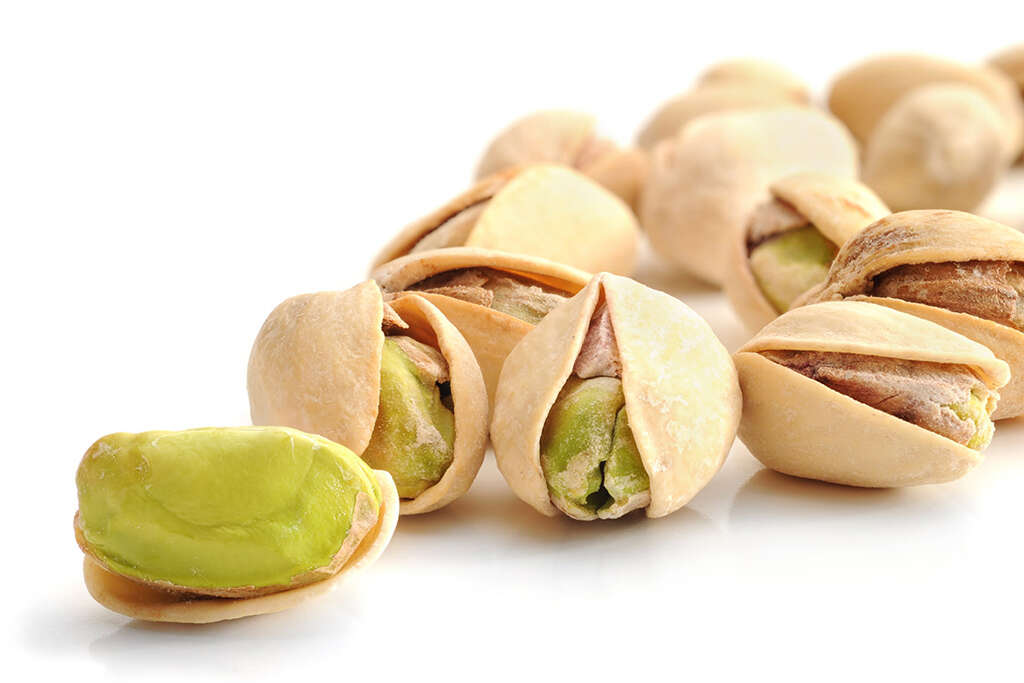
Healthy Nut #7: Brazilian Nuts
Brazilian nuts are a delicious type of nut that comes from South America. These nuts are rich in antioxidants and have high levels of monounsaturated fats. These nuts are also gluten-free and high in fiber. They are a rich source of potassium, magnesium, phosphorus, thiamin, vitamin E, vitamin B6, and folate. They have the most selenium content in all nuts.
As these nuts are rich in selenium, this trace mineral is extremely important for the body to fight inflammation, reduce toxic mercury levels, and has anti-cancer properties. Epidemiological studies on Brazilian nuts have shown that their antioxidant and antiproliferative activities reduce the risk of cancers and atherosclerosis.
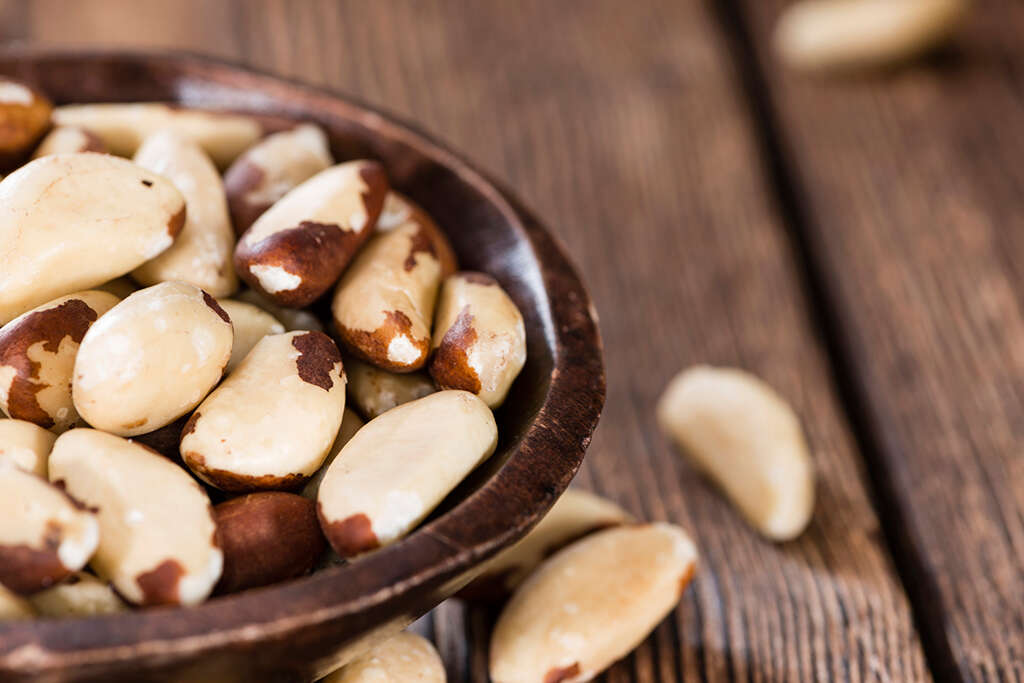
Healthy Nut #8: Hazelnut
Hazelnuts have been popular in paste form or as an ingredient to healthy dishes. Nutella has been a popular hazelnut spread that can be added to just about anything. However, products like those have added ingredients and sugars. Hazelnuts that are roasted and eaten provide many health benefits.
Hazelnuts contain a great amount of manganese, copper, vitamin E, and antioxidants. Consuming hazelnuts promotes heart health, helps manage diabetes, boosts the brain, and helps prevent cancer. Manganese has been shown to prevent and treat diseases of the brain such as Alzheimer’s or Parkinson’s. Consuming hazelnuts that are high in manganese is important for brain function.
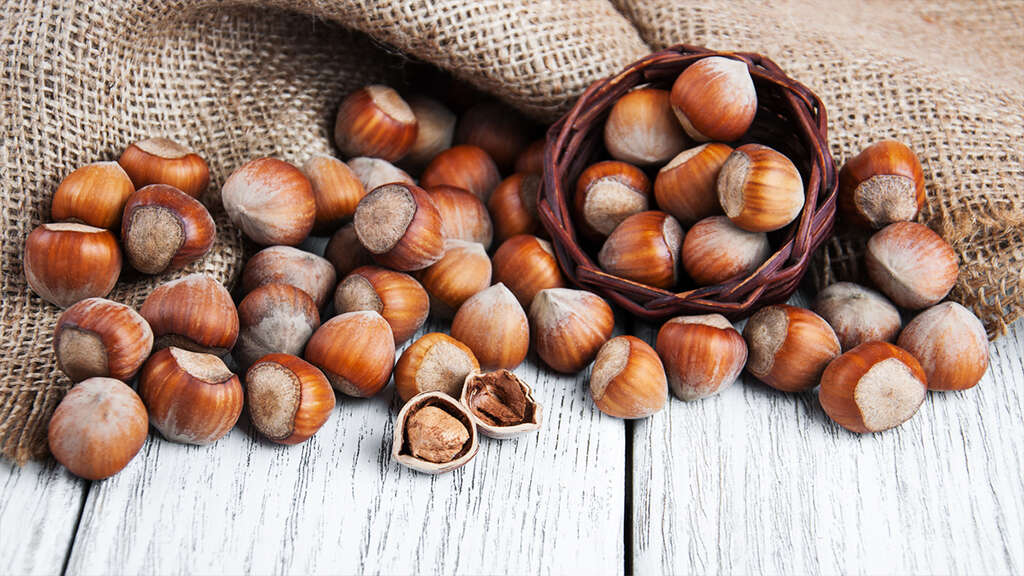
Healthy Nut #9: Chestnuts
Chestnuts are popularly seen during the holiday season in the United States. These high carbohydrate nuts are usually roasted and eaten as a snack. They are seasonal crops to they are available from October to March. They are rich in vitamin C, vitamin B6, manganese, copper, and zinc.
Chestnuts provide many health benefits. They help reduce cholesterol levels, stabilize blood sugar, increase energy, increase brain function, and help create stronger bones. Since chestnuts contain a high amount of manganese, they help neutralize free radicals and reduce the risk of disease and cancer. They are also gluten-free and can be eaten by those with a gluten intolerance or those who have celiac disease.
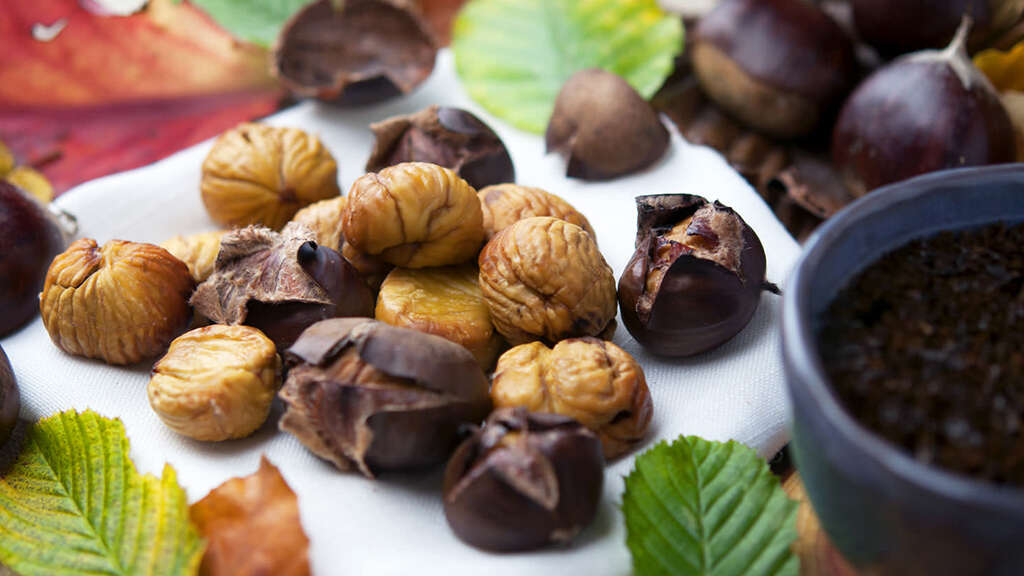
Healthy Nut #10: Peanuts
Peanuts are one of most popular eaten roasted or as peanut butter. However, peanuts are technically part of the legume family and are related to lentils and beans. They contain a good source of protein, B vitamins, choline, niacin, magnesium, phosphorus, potassium, copper, and manganese. Peanuts are high in fat so the consumption of peanut butter should be limited.
Peanuts are low in carbohydrates so this is a great food suitable for those with diabetes. Since peanuts contain a high amount of magnesium, they are great for cardiovascular health. They also contain antioxidants and plant compounds that help reduce the risk of cancer and cardiovascular disease.




